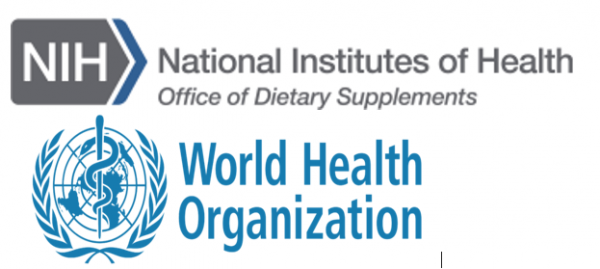Culinary argan oil, a staple in Moroccan cuisine, is celebrated for its nutty flavor and potential health benefits. It is the ‘roasted kernels’ version of cosmetic argan oil. Roasting brings out the taste and brings benefits to life. Cosmetic argan oil is a great moisturizer for skin, hair, and nails.
We wrote earlier about Fatty Acids, MUFA & PUFA’s. Polyunsaturated fats (PUFAs) are important for nerve function, blood clotting, heart and brain health, and muscle strength. They are “essential,” meaning your body needs them to function but cannot produce them.
Polyunsaturated fats can help reduce bad cholesterol levels in your blood and lower your risk of heart disease and stroke. They also supply nutrients to help develop and support your body’s cells. Imagine PUFAs as the oil that keeps a machine (your body) running smoothly. Without them, our bodies wouldn’t function properly!
Boost Your Health with Argan Oil: The Top Choice for Vitamin E Enthusiasts
when compared to other minimally processed vegetable oils. It has the most vitamin E of them all.
Vitamin E is one of the 13 vitamins (special substances) your body needs. Some vitamins can your body make, but not all of them.
The vitamins that your body can make are vitamin D, niacin(B3), and vitamin K. The other ten vitamins you need to get from food or supplements. Also, some vitamins are stored in your body’s fat, and others are washed out when you pee. Vitamins are fat-soluble or water-soluble.
Let’s highlight Vitamin E:
A fat-soluble vitamin your body can’t make, so you need to get it through food or supplements. This vitamin has antioxidant properties and helps protect your cells from damage caused by free radicals. Free radicals are unstable molecules that can harm your DNA, proteins, and membranes. Vitamin E consists of four types of Tocopherols: alpha, beta, gamma, and delta.
Each one has a slightly different chemical structure and biological activity. Tocopherols are found in various foods, especially vegetable oils, nuts, seeds, and green leafy vegetables. Some examples of foods rich in tocopherols are culinary argan oil, sunflower oil, almonds, hazelnuts, spinach, and broccoli.
Besides its rich antioxidant content, other compounds present in argan oil, such as CoenzymeQ10 ( ‘cell’s powerhouse’), melatonin, and plant sterols, also contribute to its antioxidant ability. Think of antioxidants as your body’s personal superhero team. They swoop in to save the day when harmful villains (free radicals) try to wreak havoc on your body’s cells. Just like how superheroes protect cities from villains, antioxidants protect your body from diseases!
How Vitamin E Plays Multiple Essential Roles?
In addition to being a rich, potent antioxidant, vitamin E plays many roles in your body. It’s needed for proper immune function and cellular signaling. Vitamin E is important for your brain, eyes, immune system, and heart health. The nutrient may prevent heart disease and eye disorders, improve cognitive function, and even protect against some cancers.
The Vitamin E in our oil is natural, not synthetic, and, according to the Mayo Clinic, your body may use and absorb natural vitamins more efficiently.
Culinary argan oil offers more than just a unique flavor profile; it is healthy. So next time you’re cooking up a storm in the kitchen or looking for a healthy addition to your meals – consider reaching for our bottle of culinary argan oil.
According to IFT’s Food News Now, that’s exactly what customers today are looking for: ‘better-for-you’ ingredients that not only offer specific health – but also functional benefits. Customers in restaurants favor unique, exotic, and natural flavors. If it’s not tasty, why bother?

Discover the Incredible Health Benefits of the Other 12 Essential Vitamins
Vitamin A helps you see better in the dark and makes your skin, hair, and nails look nice. It also helps your body fight off infections and may protect you from getting sick. Where to get vitamin A: Salmon, other fish, eggs, milk, cheese, yogurt.
Vitamin D is a fat-soluble vitamin that helps your body absorb calcium and phosphorus: minerals that are important for your bones and teeth. Your body can make vitamin D when your skin is exposed to sunlight. Many people do not get enough sun exposure or have difficulty converting sunlight into vitamin D, so they may need to get vitamin D from food or supplements. Vitamin D is good for athletes who need strong bones to run, jump, or lift weights. It is in milk, yogurt, cheese, butter, eggs, and fish. Vitamin D deficiency is associated with premature death, according to a study published in October 2022.
Vitamin K is a fat-soluble vitamin that helps your blood clot properly, which prevents excessive bleeding and bruising. It also helps your bones stay healthy and may prevent fractures in older adults. Your body can get vitamin K from bacteria that live in your gut, depending on the health and diversity of your gut bacteria. Get vitamin K: Spinach, broccoli, lettuce, cabbage, liver.
Vitamin C is the most known; it helps your body heal wounds and fight off germs. It also helps your body make a substance called collagen, which is important for wound healing and skin elasticity. Vitamin C also makes iron easier to absorb; iron is a mineral that carries oxygen in your blood. Sources of vitamin C: Oranges, lemons, grapefruits, strawberries, kiwis, peppers, broccoli, and potatoes.
There are 8 vitamins B. Why?
There are eight vitamins B, all water-soluble, which means they dissolve in water and are not stored in the body. They also help the body make energy from food and support other functions. Originally there was one (). The reason they do not follow the alphabet: B vitamins were renamed or reclassified as other substances.
For example, vitamin B4 is now known as choline, vitamin B8 is now known as inositol, and vitamin B10 is now known as para-aminobenzoic acid. These are still important for health, but they are not considered essential vitamins anymore.
Thiamine (Vitamin B1) helps your body turn carbohydrates into energy. Carbohydrates are sugars and starches that you get from foods like bread, rice, pasta, and fruits. Thiamine also helps your brain and nerves work well. Where to get Thiamine: Whole grains, bread, cereal, meat, fish, poultry, nuts, seeds, beans.
Riboflavin (Vitamin B2) helps your body break down proteins, fats, and carbohydrates. It also helps your eyes see well and your skin healthy. Sources of riboflavin: Milk, yogurt, cheese, eggs, meat, green leafy vegetables, bread, cereal.
Niacin (Vitamin B3) helps your body make energy from food. Your body can make niacin from an amino acid called tryptophan, which is found in protein-rich foods. Niacin also helps your body grow normally and keeps your skin, nerves, and digestive system healthy. It can also lower your cholesterol levels and prevent some diseases. Get niacin from meat, poultry, fish, peanuts, bread, cereal, mushrooms, and peas.
Pantothenic Acid (Vitamin B5) helps your body make fatty acids, cholesterol, hormones, and neurotransmitters. Fatty acids are important for your cell membranes and energy production. Cholesterol is important for your hormones and vitamin D. Hormones are chemicals that control your growth, mood, and metabolism. Neurotransmitters are chemicals that help your brain communicate with your body. Where to get Pantothenic Acid: Meat, poultry, fish, eggs, milk, whole grains, beans, mushrooms, broccoli, and avocados.
Pyridoxine (Vitamin B6) helps your body use proteins, fats, and carbohydrates. It also helps your body make red blood cells, which carry oxygen in your blood. It also helps your body make neurotransmitters such as serotonin and melatonin. Serotonin is a chemical that regulates mood and can make you happy and calm. Melatonin is a chemical that can make you sleepy and regulates your sleep cycle. A study published in June 2023 found that taking higher-than-recommended doses of vitamin B6 for five years reduced the risk of atrial fibrillation, a type of irregular heartbeat, in older men and women Source it through meat, fish, poultry, nuts, seeds, beans, bananas, avocados, cereal.
Biotin (Vitamin B7) helps your body use glucose and make fatty acids and amino acids. Glucose is a simple sugar that gives you energy. Fatty acids are important for your cell membranes and energy production. Amino acids are the building blocks of proteins, which are important for your muscles, skin, hair, and nails. Where to get Biotin: Eggs, liver, meat, fish, nuts, seeds, beans, cauliflower, mushrooms.
Folate (Vitamin B9) helps your body make DNA, RNA, and red blood cells. DNA and RNA are the molecules that store your genetic information and tell your cells what to do. Red blood cells carry oxygen in your blood. Folate is especially important for pregnant women because it helps prevent birth defects in babies. A study published in June 2023 found that taking higher-than-recommended doses of vitamin B6 for five years reduced the risk of atrial fibrillation, a type of irregular heartbeat, in older men and women. Folate is good for athletes who need to have enough oxygen in their blood and healthy cells in their bodies.
Some well-known medical conditions triggering the demand to get more vitamins:
- Osteoporosis: This is a condition that causes your bones to become weak and brittle. You may need extra vitamin D and calcium to help your bones stay strong and prevent fractures. Vitamin D helps your body absorb calcium from food, and calcium is a mineral that builds and supports your bones.
- Crohn’s disease or celiac disease: These are conditions that affect your digestive system and make it hard for you to absorb nutrients from food. You may need extra vitamins and minerals, especially iron, folate, vitamin B12, and zinc, to prevent anemia, infections, and other complications.
- Vitamin B12 deficiency occurs when you don’t have enough vitamin B12 in your body. Vitamin B12 helps your body make red blood cells, which carry oxygen in your blood. It also helps your nervous system function properly. You may need extra vitamin B12 if you are vegan or vegetarian (highly debated), have pernicious anemia, or take certain medications that lower your stomach acid.
- Pregnancy: You need more nutrients to support the growth and development of your baby. You may need extra folic acid, iron, calcium, vitamin D, and other vitamins and minerals to prevent birth defects, anemia, and bone loss. Folic acid is especially important in the first trimester of pregnancy, as it helps prevent neural tube defects in the baby’s brain and spine.
Always consult your doctor or a registered dietitian before taking any supplements. They can help you figure out what vitamins and minerals you need, how much you need, and where to get them from food or supplements. Remember that supplements are not a substitute for a healthy diet and may have side effects or interactions with other medications.
Here are a few recipes that include ingredients rich in Vitamin E:
Avocado Salad: Avocado is a great source of Vitamin E. You can make a simple avocado salad with mixed greens, cherry tomatoes, cucumber, and a dressing of argan oil, lemon juice, salt, and pepper.
Swiss Chard & Kohlrabi with Lemon Sauce: Both Swiss chard and kohlrabi are good sources of Vitamin E. You can sauté these vegetables in argan oil and garlic, then finish with a squeeze of fresh lemon juice.
Anytime Eggs: Eggs are another good source of Vitamin E. Try making a scramble or an omelet with vegetables like spinach and bell peppers, which also have Vitamin E.
Broccoli with a Crunch: Broccoli is high in many nutrients, including Vitamin E. You can steam the broccoli until it’s bright green and still crisp, then drizzle with argan oil and sprinkle with toasted almonds for extra crunch and Vitamin E.
More into grains? Culinary argan oil, with its unique nutty flavor, can also enhance a variety of grains. Here are a few examples:
Couscous: Argan oil can be drizzled over cooked couscous to add a rich, nutty flavor. It’s a common practice in Moroccan cuisine.
Rice: Mixing argan oil into rice can add a unique flavor dimension. It pairs well with both white and brown rice.
Lentils and Beans: Argan oil can be added to lentils and beans towards the end of the cooking process. The oil adds a unique depth of flavor to these hearty grains.
Quinoa: This whole grain has a robust flavor that works well with the boldness of argan oil. Try mixing argan oil into a quinoa salad or drizzle it over a hearty quinoa bowl.
Umami-rich foods, sauces, and stews? Culinary argan oil pairs perfectly. Recently, noted senior oil sommelier Jun Mochizuki created a dish with umami for us.
Marinade: Argan oil can be used in marinades for fish to add a rich, nutty flavor. You can mix argan oil with lemon juice, garlic, and herbs, then let the fish marinate in this mixture before grilling or baking.
Daring? Try veggies such as Antroewa (African eggplant/bitter lemon), or Okra. Antroewa has a high nutrient yield but is very bitter due to its alkaloids. Use the leaves in moderation. Drizzle argan oil over cooked antroewa for a nutty flavor. If you’re making a salad with antroewa, use argan oil in the dressing. Culinary argan oil can be used in okra dishes to enhance the flavor.
For example, if you’re stir-frying okra, you could add a bit of argan oil towards the end of cooking for a unique nutty taste. If you’re making a stew or soup with okra, a drizzle of argan oil before serving will work great.

More on vitamins:
For more information on Vitamin E, particularly its forms (tocopherols and tocotrienols), their functions, dietary recommendations, and health effects, check out:

National Institutes of Health (NIH) – Office of Dietary Supplements: The NIH supplies comprehensive information on vitamins and minerals, including Vitamin E. Their website offers detailed fact sheets, dietary reference intake (DRI) guidelines, and research findings related to Vitamin E. But Culinary Argan Oil needs a listing,
Website: NIH – Vitamin E
World Health Organization (WHO): WHO publishes authoritative reports and guidelines on nutrition and health. They often include information on the role of Vitamin E in supporting health and preventing diseases.
Website: WHO – Nutrition
Academic and Medical Journals: Peer-reviewed scientific journals like the Journal of Nutrition, Free Radical Biology and Medicine, and the American Journal of Clinical Nutrition regularly publish research studies and reviews on Vitamin E.
